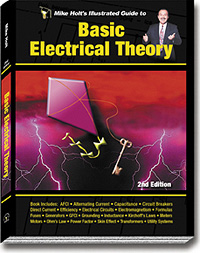bphgravity
Senior Member
- Location
- Florida
I am an instructor for the Electrical Council of Florida. We are currently reviewing our curriculum and one of the major issues that has come up is the level of theory we teach to our 2nd year apprentices.
Many on the board feel that a good portion of our theory section can be cut from the program so more "field" related topics can be explored. The argument is that most electricians do not need the level of math and related formulas that are assoicated with AC theory in the field.
Others feel that reducing the theory portion of the curriculum "dumbs" down the program and effectively reduces the program to an "installer" program instead of an "electrician" program.
The bottom line is that our clients are the local electrical contractors. If they do not supply the apprentices, we don't have a program. This means we are essentially at the wim of their wishes. They are more interested in basic training and product identification for their employees instead of theory based courses. Basically, they want us to make the apprentice more cost effective more immediately, instead of setting up the employee for long term education and development into a journeyman.
I am personally conflicted about the situation. I feel both sides have merit. On one hand, many of the apprentices drop out during or right after the second year because of the math and complex theory during this year. Many become frustrated and feel the program is not advancing their career learing things like solving problems with resistors in parallel with capacitors and inductors verses learning how to bend conduit and tubing. On the other hand, theory is an essential part to a electricians understanding of the fundementals of electricity and things like conduit bending is supposed to be learned through on the job training and not the apprenticeship program, however contractors are too busy and short handed as it is to stop and train new employees properly.
What are your thoughts? Have any other instructors here seen this issue with the programs you work for? We are a fairly young program, only 6 years old. The prgram is pretty much what it was from inception and could use some adjustments. We are very concerned with student drop and contractor participation. Do you feel we should cater to our customer or stick to our principles and beliefs of what an apprenticeship program should be?
Many on the board feel that a good portion of our theory section can be cut from the program so more "field" related topics can be explored. The argument is that most electricians do not need the level of math and related formulas that are assoicated with AC theory in the field.
Others feel that reducing the theory portion of the curriculum "dumbs" down the program and effectively reduces the program to an "installer" program instead of an "electrician" program.
The bottom line is that our clients are the local electrical contractors. If they do not supply the apprentices, we don't have a program. This means we are essentially at the wim of their wishes. They are more interested in basic training and product identification for their employees instead of theory based courses. Basically, they want us to make the apprentice more cost effective more immediately, instead of setting up the employee for long term education and development into a journeyman.
I am personally conflicted about the situation. I feel both sides have merit. On one hand, many of the apprentices drop out during or right after the second year because of the math and complex theory during this year. Many become frustrated and feel the program is not advancing their career learing things like solving problems with resistors in parallel with capacitors and inductors verses learning how to bend conduit and tubing. On the other hand, theory is an essential part to a electricians understanding of the fundementals of electricity and things like conduit bending is supposed to be learned through on the job training and not the apprenticeship program, however contractors are too busy and short handed as it is to stop and train new employees properly.
What are your thoughts? Have any other instructors here seen this issue with the programs you work for? We are a fairly young program, only 6 years old. The prgram is pretty much what it was from inception and could use some adjustments. We are very concerned with student drop and contractor participation. Do you feel we should cater to our customer or stick to our principles and beliefs of what an apprenticeship program should be?


